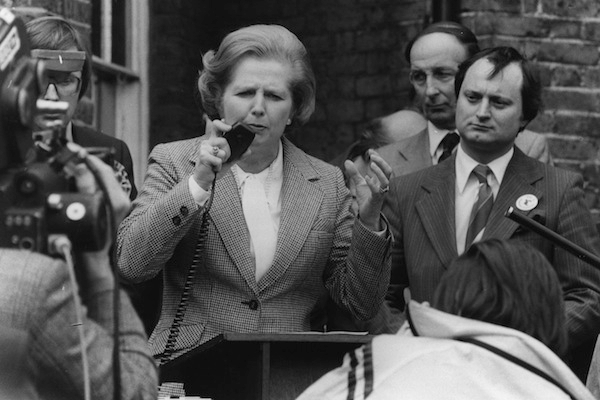Margaret Thatcher remains a truly hated figure in the north of England. The 1984 Miners’ Strike and retrenchment of the shipyards had a phenomenal social impact which has pretty much written off a generation (or more) of voters for the Conservative party.
Sunderland makes a good case study of the challenges faced by Tories in the wake of Thatcherism. As this anecdote from a Tory activist on the stump highlights, voters in the neck of those woods seem unable to forgive her:
“I met a man in his mid 60s from Morton. He started to call Thatcher all the names under the sun for no apparent reason — I had not remotely mentioned her — and said that the “only thing that f***ing woman had ever done for me was let me buy my council house and my British Gas shares”. He then spat on the pavement in memory of the former Prime Minister and walked off.’
Robert Oliver, head of Sunderland Conservatives for the past two years, says those who do approve of Thatcher admire her bravery ‘whether it be facing down aggression in the Falklands War or standing up for us in Europe’, along with some of her more populist policies:
‘Policies that appealed to independent-minded people such as the right to buy and low tax are often mentioned [on the doorstep] especially by people who bought their council house and improved it.’
The reality of Thatcher’s legacy in Sunderland is not quite as disastrous. As I noted when I visited the region in December, the Nissan car factory in Sunderland is a prime example of how Thatcher’s reforms were’t entirely harmful. Today, more people work in the car plant — which has just had a £250 million boost — than in the shipyards when they closed up in the 1990s. The 125-acre Doxford International Park, designated an enterprise zone at the end of the 1980s, has also seen a successful new stream of employment for the city through call centres. Andrew Adonis has been been visiting Sunderland today to launch his North East Economic Review but something was missing:
We’ve heard Nissan mentioned a lot today, but no mention of Thatcher, who helped bring it here.
— Adrian Pearson (@Adrian_Pearson) April 11, 2013
These positive aspects of Thatcherism do little to convince voters the move away from coal mining and shipbuilding was the right one. At the 2010 general election, a big push by Conservative HQ to get behind candidate Lee Martin in Sunderland Central resulted in a 5.6 per cent swing — above the national average — but Labour still managed a 6,000 majority.
As James reported last week, one of Westminster’s brightest minds is forming a new group to take up the challenge and convince such spitting Northern voters the Tories are on their side. And part of his job is trying to unravel the complex legacy of Margaret Thatcher in northern constituencies like Sunderland. That’s still a tough task.






Comments